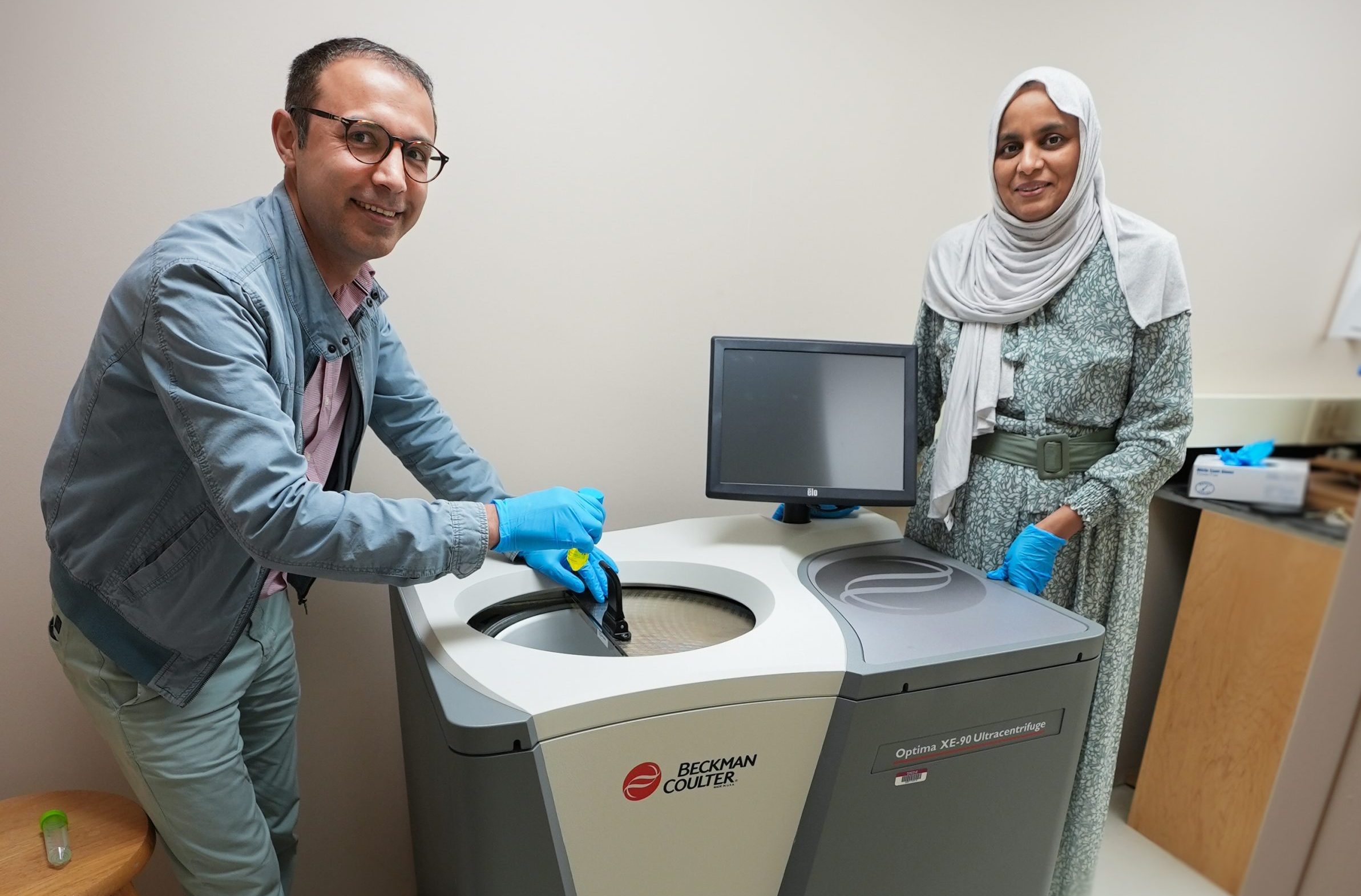UA Little Rock Professors Receive $50,000 Grant from INBRE to Bring New Centrifuge to Campus

Two University of Arkansas at Little Rock chemistry professors have received a $50,000 grant from the Arkansas IDeA Network of Biomedical Research Excellence (INBRE) that will bring new equipment to campus that will greatly enhance chemistry research and education.
The professors have used the grant to acquire an ultra-speed centrifuge for biomedical research. This instrument will augment a wide array of chemistry research and teaching applications, such as drug development, proteomics, and metabolomics research. They will be able to use the centrifuge for many experiments, including drug design, nanomaterials preparation, cell culture, molecular biology, and biochemical analyses.
“I think having such high-end equipment at the university is unbelievable, and I am so thankful to INBRE because they gave us this opportunity,” said Dr. Mohammad Goodarzi, assistant professor of biochemistry. “We didn’t have an ultra-speed centrifuge for our students and for our research. This is a boost for us and working with Dr. Noureen Siraj on this project has been an amazing experience for me. I am also thankful to Dean Brian Berry and the Office of Research and Sponsored Programs for all their help with this grant.”
Goodarzi’s research team investigates the intersection of biochemistry, cell and molecular biology, and immunology, working to craft pharmaceuticals that respond to infection and cancer. His group is dedicated to the advancement of novel drug development that addresses pathogenic infection scenarios.
The new ultra-speed centrifuge is located in the Department of Chemistry in the Science Laboratory Building. Dr. Noureen Siraj, associate professor of chemistry, said that having the equipment will also help students have opportunities to conduct more research.
“This equipment will offer both undergraduate and graduate students hands-on experience as well as enhance scientific research and collaboration among different departments at UA Little Rock,” Siraj said. “Undergraduate students gain practical experience in using various instruments to reinforce the theoretical knowledge acquired in the classroom. Our students will get hands-on experience using the ultra-speed centrifuge, and these skills will be in high demand when they graduate.”
Additionally, the ultra-speed centrifuge is essential for the synthesis of gold nanomaterials. Siraj’s research group is developing different shapes of gold nanomaterials that will be used as a photothermal therapy drug and is also planning to incorporate other chemotherapeutic drugs in gold nanoparticles.
The INBRE grant will also help UA Little Rock form collaborations with other universities. The University of Arkansas at Pine Bluff as well as Philander Smith University both wrote letters of support for the grant.
“Unfortunately, not many higher education institutions in Arkansas have an ultra-speed centrifuge,” Goodarzi said. “We are happy to partner with institutions that do not have access to such equipment who want to use it for research and education. This will lead to multiple cross-institutional research collaborations.”
